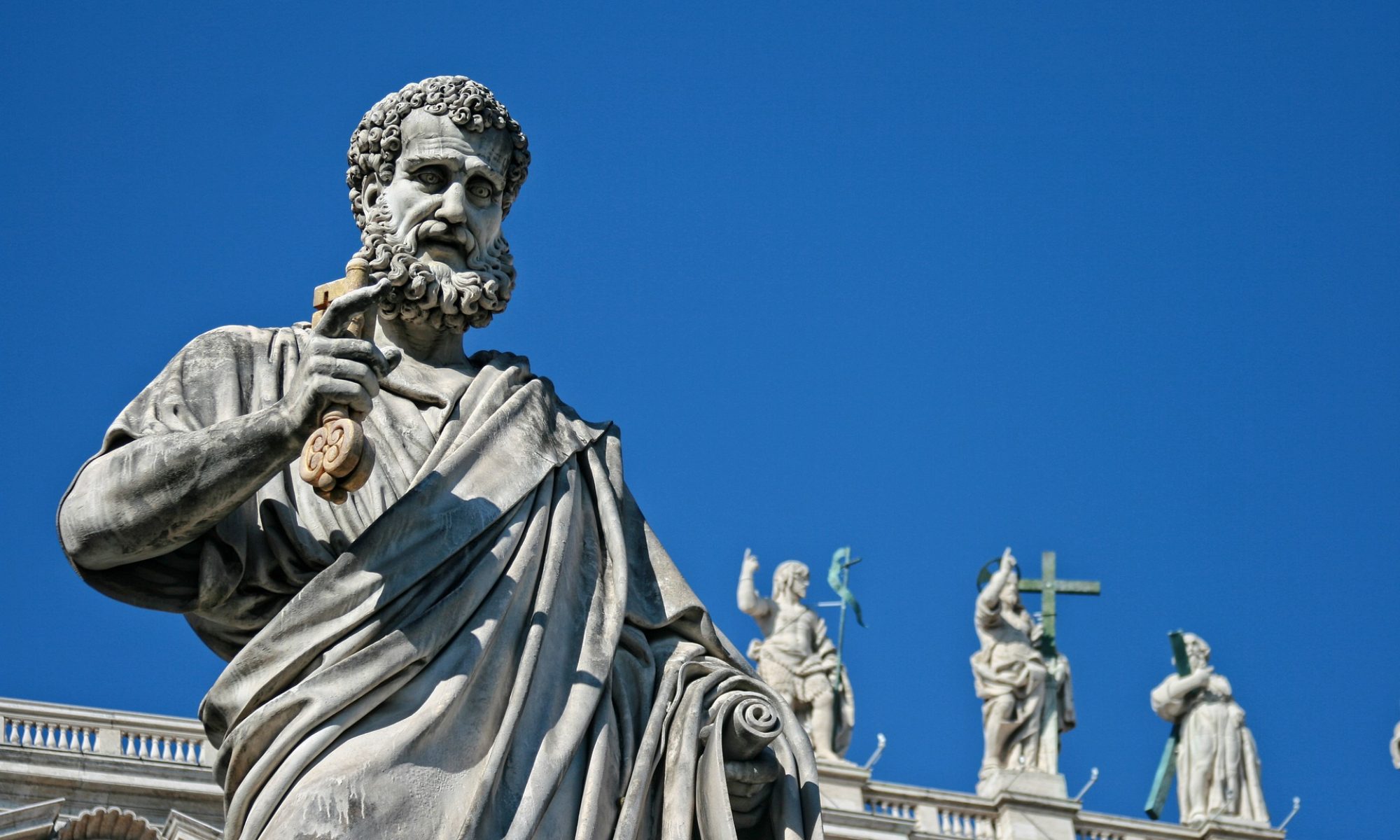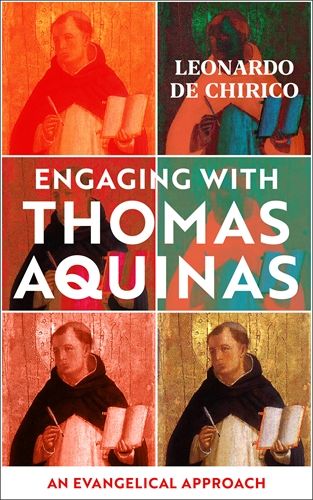On June 20th, in Naples, Italy, I had the privilege of debating Same Words, Different Worlds. Do Roman Catholics and evangelicals believe the same gospel? (2021) with a distinguished Roman Catholic theologian, Edoardo Scognamiglio, professor of Dogmatic Theology at the Pontifical Theological Faculty of Southern Italy, author of several books in the areas of Christology, inter-religious dialogue, and ecumenism.
Attended by about 80 people, the local pastor moderated the meeting well, and it was followed by questions and answers. The video of the evening is available here. Two different accounts of the gospel emerged in the conversation. The dialogue was conducted calmly and respectfully. My interventions reiterated the contents of his book, presenting a systemic analysis of Roman Catholic theology and practice and arguing the common use of words from the Bible does not mean that the evangelical and Roman Catholic faiths believe the same thing. The words “church,” “grace,” “forgiveness,” “mercy,” “justification,” “evangelization,” “mission,” etc. are given different meanings because Rome is not committed to Scripture Alone. Instead, it blends the Bible with her own traditions ultimately resulting in a “different” version of the gospel.
Scognamiglio proved to be a serious scholar. His reading of my book was appreciative and positive. He also reiterated contemporary Roman Catholicism wants to be “open” to evangelicals (but also to everybody else) but is not really interested in a journey of biblical reformation. From Scognamiglio’s words, one could observe a conciliatory attitude, not one of hostility as was the case in the past, at least in Italy. After all, according to this view shaped by Vatican II and its ecumenical outlook, we are all Christians, all children of God. It emerged that Roman Catholicism is the religion of the both-and (et-et), according to which different versions of the Christian faith are complementary, while Roman Catholicism enjoys the fullness of it.
The Catholic theologian acknowledged not all Roman Catholics are disciples of Christ, but how can this statement be reconciled with the Roman Catholic dogma of baptism being the sacrament that takes away original sin and regenerates? He also admitted popular devotions (such as the veneration of the liquifiable “blood” of San Gennaro, Saint Januarius, famous in Naples) could be deviant, but how do you reconcile that with official ecclesiastical approval of practices contrary to Scripture?
The public conversation with Professor Scognamiglio was a useful exercise in dialogue. The importance of publicly debating the faith needs to be underlined. Jesus debated the scribes, Paul reasoned with the philosophers, Irenaeus wrote against the heretics, Luther confronted Cajetan, Calvin replied to Sadoleto, and we could go on and on. The point is the biblical faith is not afraid of publicly engaging other viewpoints.
After presenting the book in the context of debates with Roman Catholic theologians, I gathered three lessons from observation and reflection on these events. I hope they resonate with what happens on the ground, especially in the wider European context.
1. Questioning the “mystique” of ecumenical unity. Present-day Roman Catholic theologians are children of Vatican II theology and have absorbed its pro-ecumenical theology. They generally have a neutral-positive view of Protestant theology (often equating it with Liberal/post-liberal/Barthian theology) while showing little acquaintance with evangelical theology for which they don’t have categories. They tend to praise the “good” things they perceive in Protestantism, i.e. a tradition of accessibility to the Bible and personal responsibility in ethics. In their studies, they have been taught the Ecumenical century (i.e. the 20th century) has overcome the division between Rome and the Reformation. The ecumenical narrative tells them that, with Vatican II, the Roman Church has absorbed the positive elements of the Reformation, engrafting them on Roman Catholic soil. The Reformation is over for them; today is the time for unity. One Roman Catholic theologian I debated at the Catholic Seminary in Ferrara almost yelled: “This is a given!” It is a kind of “mantra” to be addressed counter-culturally.
In engaging with them, one has to be aware of where they come from and be prepared to offer a different account. The evangelical theologian must present a counter-narrative whereby the Reformation is not over, given the fact that, despite the common language used by evangelicals and Catholics, the issues that began the Reformation, i.e. the supreme authority of the Bible and salvation by faith alone, are still with us. Rome did reject them and still rejects them. The 2016 document “Is the Reformation over?” signed by hundreds of evangelical leaders worldwide is useful in this regard.
2. Maintaining apologetic intentionality. Because of the ecumenical attitude, there is little desire by Roman Catholic theologians to engage in meaningful apologetics. In their view, the Council of Trent, which anathematized the Reformation, belongs to the past, and its condemnations against the Protestants need to be read in the light of the positive view of non-catholic Christians at Vatican II. Doing “controversialist” theology, i.e. arguing the Roman Catholic position against the Protestant one, is something they dislike and don’t want to do. They want to bring together different perspectives and look for what is good in each without critically analyzing what is wrong. The “catholicity” of doctrine and practice, i.e. embracing diversity into unity, is what they like. They don’t want to do apologetics; they want to do ecumenism.
I have always felt responsible for maintaining an apologetic edge to the conversation in my interactions with Roman Catholic theologians. The risk of losing it and transforming the dialogue into a celebration of our alleged unity is real. Without being emotionally antagonistic, it is the task of the evangelical theologian to raise the critical issues (e.g. the authority of Scripture, the exclusivity of Christ, the necessity of conversion, the call to abandon idolatry) and to argue that, while we all stand under the authority of God’s word and need to reform our ways accordingly, Roman Catholicism runs against biblical Christianity on several fundamental points. It is perhaps not a “nice” thing to say, but it is necessary for the gospel’s sake. Apologetics is the privilege and the responsibility of all Christians.
3. Focusing on gospel issues. Dialoguing with a Roman Catholic theologian is an intellectual feast. Generally, you are dealing with a sophisticated academic who is an expert on many topics. However, there is a risk the whole conversation may become a sterile exercise when two or more experts talk to one another, losing the gospel focus healthy theology must always have. There is also the danger of sidetracking the dialogue into an obscure dispute over historical and doctrinal details. If the conversation moves to peripheral issues or becomes polemical over secondary elements, we must bring it back to the gospel. The gospel must always be at the center. As I meet with Roman Catholic theologians, my first commitment is not to be the public defender of the evangelical movement but to be a gospel ambassador. One time, while debating the book with a lay theologian in Sicily, she commented on the wrongs made by Protestants across the ages. I said: “I agree with you. We have made many mistakes, and we must apologize for them. This is why we need the gospel.” And I went back to talking about the Good News of Jesus.
The radical difference between Roman Catholicism and the evangelical faith in no way invalidates the usefulness and importance of dialogue. With a clear identity, one should not avoid encountering other faith communities to share, defend, and commend the gospel. The gospel must be proclaimed to all respectfully, persuasively, and competently. The underlying conviction of the Christian is that the Truth is powerful and the Holy Spirit uses it to regenerate hearts and minds. The Lord has promised His word never returns empty.
AVAILABLE FOR PRE-ORDER!
On the occasion of the 8th centenary of Thomas Aquinas, the book is a thoughtful introduction aimed at presenting the main contours of his complex legacy and critically evaluating it especially in areas where the “Roman Catholic” Thomas is more than the “classical” theologian who is attracting renewed attention in evangelical circles.
The influence of Thomas Aquinas on Western theology is beyond dispute, but his is a contested legacy. In current evangelical studies there is an emerging infatuation with Thomas, especially as far as his theological metaphysics is concerned.
De Chirico offers the perplexed evangelical a framework to think through. The inquiring Roman Catholic reader will be invited to consider an alternative. The general reader may find answers to questions such as:
- Are Thomas and Thomism(s) the same?
- What does evangelical thought need to be aware about the strengths and dangers of Thomas Aquinas?
- How can Rome’s chief doctor be at the same time a reference point for evangelical theology?
The book will address this whole debate by contributing a thoughtful analysis from an evangelical viewpoint. IVP Books.


